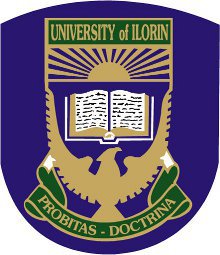How To Secure A Canadian Student Visa For African Students. Dear Villager, fellow African dreamer! If you’re like me, the idea of studying in Canada—land of maple syrup, top-tier universities, and endless opportunities—feels like a thrilling leap toward your future.

But let’s be real: the student visa process can seem like a maze, especially when you’re navigating it from Africa. I’ve spent hours researching this path, and I’m here to share a clear, personal roadmap to help you get that Canadian study permit.
This guide breaks down the process step by step, highlights affordable and premium visa pathways, covers costs, and explores part-time job options for F-1 students in key Canadian cities. Let’s dive in and make your study abroad dream a reality!
Why Canada? A Quick Pep Talk for African Students
Canada’s education system is world-class, with universities like the University of Toronto and UBC consistently ranking among the best. As an African student, you’ll bring unique perspectives and skills—like bilingualism in languages like Swahili, French, or Yoruba—that are gold in Canada’s diverse healthcare and tech sectors.
Plus, with a study permit, you can work part-time (up to 20 hours/week during terms) to offset costs and gain experience. After graduation, the Post-Graduation Work Permit (PGWP) lets you work for up to three years, opening doors to permanent residency. But first, we need that visa.
Here’s how to get it, tailored for affordability and ambition.
The Canadian Student Visa Process: Your Step-by-Step Roadmap
Before diving into specific pathways, let’s map out the general process for securing a Canadian study permit from Africa. Each step is crucial, so take your time to get it right.
- Get Accepted by a Designated Learning Institution (DLI)
- What to Do: Apply to a Canadian university or college on the DLI list, approved to host international students. Research programs that match your goals (e.g., nursing, engineering). Submit academic transcripts, English proficiency tests (IELTS/TOEFL), and a statement of purpose.
- Tip: Start 12–18 months before your intended start date. Popular DLIs have early deadlines (e.g., January for September intake).
- Cost: Application fees range from CAD 50–150 per institution.
- Receive Your Letter of Acceptance (LOA) and Provincial Attestation Letter (PAL/TAL)
- What Happens: If accepted, the DLI sends an LOA. As of January 2024, you’ll also need a PAL/TAL from the province/territory (or a Quebec Acceptance Certificate [CAQ] for Quebec) to comply with Canada’s study permit cap.
- Tip: Verify all details in the LOA and PAL/TAL. Errors can delay your visa.
- Gather Visa Documents
- Key Documents: Valid passport, LOA, PAL/TAL, proof of funds (CAD 20,635/year for living expenses + tuition, or CAD 11,000 in Quebec), two passport-sized photos, and a letter explaining why you want to study in Canada. Some African countries require biometrics, a medical exam, or a police clearance certificate.
- Tip: Scan documents in PDF/JPEG (max 4 MB) and follow IRCC’s country-specific checklist.
- Apply for the Study Permit
- How: Apply online via the IRCC portal (preferred) or at a Visa Application Centre (VAC) in your country. Pay CAD 150 for the study permit and CAD 85 for biometrics (if required).
- Processing Time: 8–13 weeks, but apply 4–6 months early to avoid delays. The Student Direct Stream (SDS) offers 20-day processing for eligible African countries like Nigeria and Senegal.
- Tip: Double-check your application to avoid rejections due to missing funds or documents.
- Provide Biometrics and Attend Interviews (if Needed)
- Biometrics: Most African applicants must provide fingerprints and a photo at a VAC. Schedule within 30 days of applying.
- Interview: Rare, but IRCC may request one to verify your intentions.
- Tip: Book biometrics early to stay on track.
- Receive Your Visa Decision
- Approval: You’ll get a Port of Entry (POE) Letter of Introduction and, if needed, a Temporary Resident Visa (TRV) or Electronic Travel Authorization (eTA). Present these at the Canadian border to receive your study permit.
- Refusal: Common reasons include insufficient funds or unclear intent. Reapply after addressing issues or seek professional help.
- Plan Your Arrival
- What to Do: Arrive 2–4 weeks before classes for orientation. Carry your LOA, PAL/TAL, and POE Letter. Arrange housing and apply for a Social Insurance Number (SIN) to work.
- Tip: Join African student groups for support in your new city.
Affordable Pathways: Budget-Friendly Study Permit Options
For African students mindful of costs, these pathways focus on public DLIs in less expensive cities, with lower tuition and living expenses. Part-time jobs can further ease the financial load.
Pathway 1: University of Manitoba – Winnipeg, Manitoba
- Why Choose It: A public DLI with affordable tuition and a welcoming international student community. Its nursing and computer science programs are top-notch, and Winnipeg’s low cost of living is a win for African students.
- Program Highlights: Bachelor’s and master’s degrees with practical training. High employability in Manitoba’s healthcare and tech sectors.
- Tuition and Fees: ~CAD 18,000–22,000/year for undergraduates; ~CAD 12,000–15,000/year for graduates. Books and supplies ~CAD 1,500/year.
- Living Expenses: Winnipeg’s cost-of-living index is 71.2 (well below Canada’s average). Expect CAD 10,000–14,000/year for housing (e.g., CAD 800/month for a shared apartment), food, and transit.
- Financial Aid: International student scholarships (up to CAD 5,000) and work-study programs available. Manitoba’s Provincial Nominee Program (MPNP) offers post-graduation pathways.
- Part-Time Jobs for F-1 Students in Winnipeg:
- On-Campus Jobs: Library assistant or student services aide (~CAD 14–18/hour). University of Manitoba hires for admin and research roles.
- Retail/Food Service: Barista at Tim Hortons (~CAD 14–16/hour, plus tips). Common near campus.
- Tutoring: Academic or language tutoring (~CAD 15–25/hour). Bilingual skills (e.g., French, Swahili) are in demand.
- Work Rules: Up to 20 hours/week on-campus during terms; full-time during breaks. Off-campus work requires CPT after one year.
Pathway 2: Memorial University of Newfoundland – St. John’s, Newfoundland and Labrador
- Why Choose It: One of Canada’s most affordable DLIs, with a close-knit community and strong support for African students through international student advisors. Known for engineering and environmental sciences.
- Program Highlights: Undergraduate and graduate programs with co-op options for work experience. High NCLEX pass rates for nursing.
- Tuition and Fees: ~CAD 11,460–20,000/year for undergraduates; ~CAD 9,700/year for graduates. Books and supplies ~CAD 1,200/year.
- Living Expenses: St. John’s cost-of-living index is 75.5. Expect CAD 9,000–13,000/year for housing (e.g., CAD 700/month for a shared apartment), food, and transit.
- Financial Aid: Entrance scholarships (CAD 3,000–6,000) and external grants like the African Union Scholarship. Work-study available.
- Part-Time Jobs for F-1 Students in St. John’s:
- On-Campus Jobs: Research aide or bookstore clerk (~CAD 13–17/hour). Memorial hires for student services.
- Food Service: Server at campus dining (~CAD 12–15/hour, plus tips).
- Peer Mentor: Support new students (~CAD 14–18/hour). Great for leadership skills.
- Work Rules: On-campus only in year one; CPT for off-campus roles after one year.
High-Investment Study Permit Options
These pathways involve prestigious DLIs in major cities with higher costs but offer elite education, global networks, and vibrant job markets. Ideal for students aiming for competitive fields.
Pathway 1: University of Toronto – Toronto, Ontario
- Why Choose It: Ranked among the top 20 globally, U of T is a powerhouse for nursing, business, and tech. Its diverse student body (25% international) and African student associations create a welcoming environment. Toronto’s bustling job market is a bonus.
- Program Highlights: BSN, MSc, and PhD programs with cutting-edge research. Clinical placements at top hospitals like Toronto General.
- Tuition and Fees: ~CAD 40,000–60,000/year for undergraduates; ~CAD 30,000–50,000/year for graduates. Books and supplies ~CAD 2,000/year.
- Living Expenses: Toronto’s cost-of-living index is 93.5. Expect CAD 15,000–22,000/year for housing (e.g., CAD 1,500/month for a shared apartment), food, and transit.
- Financial Aid: Merit-based scholarships (up to CAD 10,000) and private loans available. U of T connects students to hospital sponsorships.
- Part-Time Jobs for F-1 Students in Toronto:
- On-Campus Jobs: Library aide or event staff (~CAD 16–22/hour). U of T’s campuses hire extensively.
- Retail: Sales associate at Eaton Centre (~CAD 15–18/hour).
- Language Tutor: Teach French or African languages (~CAD 20–30/hour). High demand in diverse Toronto.
- Work Rules: 20 hours/week on-campus; CPT for off-campus roles like clinic assistants after one year.
Pathway 2: University of British Columbia (UBC) – Vancouver, British Columbia
- Why Choose It: UBC’s global reputation and stunning Vancouver campus make it a top pick. Its nursing and data science programs are world-class, and the international student office offers visa and cultural support.
- Program Highlights: BSN, MSN, and DNP programs with a focus on global health. Co-op programs for work experience.
- Tuition and Fees: ~CAD 38,000–50,000/year for undergraduates; ~CAD 25,000–40,000/year for graduates. Books and supplies ~CAD 2,500/year.
- Living Expenses: Vancouver’s cost-of-living index is 96.2. Expect CAD 18,000–25,000/year for housing (e.g., CAD 1,800/month for a shared apartment), food, and transit.
- Financial Aid: International Major Entrance Scholarships (up to CAD 40,000) and work-study programs. External grants like the MasterCard Foundation Scholars Program are accessible.
- Part-Time Jobs for F-1 Students in Vancouver:
- On-Campus Jobs: Research assistant or IT support (~CAD 17–24/hour). UBC’s labs hire regularly.
- Food Service: Barista at campus Starbucks (~CAD 15–18/hour, plus tips).
- Student Ambassador: Promote UBC at events (~CAD 16–22/hour). Great for networking.
- Work Rules: On-campus only initially; CPT for off-campus roles after one year.
Costs Breakdown: What to Budget
- Visa Fees: CAD 150 (study permit) + CAD 85 (biometrics, if required). Non-refundable.
- Proof of Funds: Show CAD 20,635/year for living expenses (CAD 11,000 in Quebec) + tuition. A Guaranteed Investment Certificate (GIC) of CAD 10,206 is recommended for SDS applicants.
- Medical Exam: ~CAD 200–400 (if required, e.g., for nursing students).
- Travel Costs: Flights from Africa to Canada range from CAD 800–2,000 (one-way), depending on your country (e.g., Nigeria, Kenya).
- Health Insurance: Mandatory in most provinces (e.g., CAD 600/year in Ontario). Some schools include it in fees.
Tips to Make It Work
- Start Early: Apply to DLIs and for your visa 12–18 months in advance to beat deadlines and processing delays.
- Leverage SDS: If you’re from Nigeria, Senegal, or other eligible African countries, use the Student Direct Stream for faster processing. Ensure you have a GIC, paid tuition, and IELTS/TOEFL scores.
- Financial Planning: Seek scholarships like the MasterCard Foundation or African Union grants. On-campus jobs can cover 20–30% of living costs.
- Cultural Fit: Join African student groups in cities like Toronto or Winnipeg for community support.
- Work Smart: Prioritize on-campus jobs (no CPT needed) in your first year. Tutoring or language roles leverage your bilingual skills for higher pay.
- Post-Graduation: The PGWP allows full-time work for up to three years, a stepping stone to permanent residency via Express Entry or Provincial Nominee Programs.
Your Next Steps
Getting a Canadian student visa from Africa is a journey, but it’s one worth taking. Whether you choose an affordable path at Memorial University or aim for prestige at U of T, each step brings you closer to a world-class education and a bright future. The key is preparation: gather your documents, secure funding, and lean on your resilience as an African student. You’ve got this!







